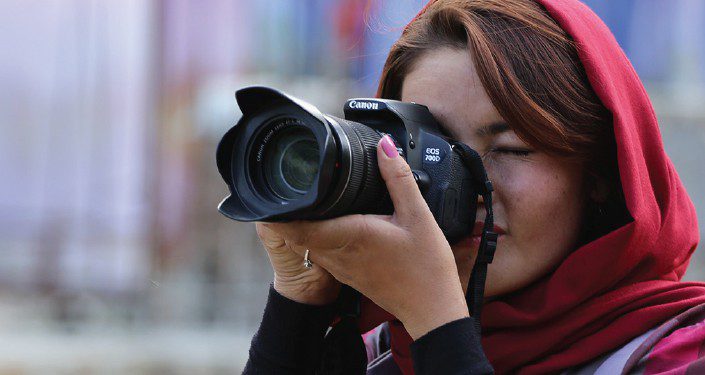
Internews believes that access to information is a root solution to many of the world’s problems. It enables women and men to participate in civic discourse, stand up for their rights, influence policy and social norms, and hold governments to account.
When women’s voices are heard, when women make decisions and produce the news, the information that everyone consumes improves.
We believe that the empowerment of women, girls and gender-diverse individuals is a prerequisite for equal rights for all. But all over the world, women are severely underrepresented and frequently misrepresented in media content. Their perspectives are often rendered invisible, with far less content featuring women’s voices. Globally, women represent only 25% of those seen, heard, and read about in news stories and 24% of the expert sources quoted by the news media (GMMP, 2020). The silencing of women’s voices contributes to a culture that devalues women and girls, reinforcing traditional and harmful gender norms
The industry itself faces many challenges related to gender equality. While in many places women are increasingly entering the field of journalism and forging their own paths to media ownership in digital spaces, they remain underrepresented in leadership and decision-making roles, particularly in traditional media and ‘hard’ news beats such as politics, economy and foreign affairs. Women journalists also face disproportionate safety threats online and offline.
Across the world, gender and sexual minorities confront unique challenges and barriers to information equality, accurate media representation, and participation in the media industry, including legal restrictions and harsh social hostilities that diminish access to fair media coverage and encourage sources, subjects, and media producers to hide their identities. In societies that are particularly hostile to gender and sexual minorities, these communities are either ignored due to censorship and self-censorship or exposed in ways that perpetuate harmful myths and stereotypes or stoke fear and hatred against them. Such unethical media coverage puts already at-risk individuals in even greater danger and has been linked to further politicization and legislative backlash against gender and sexual minorities.